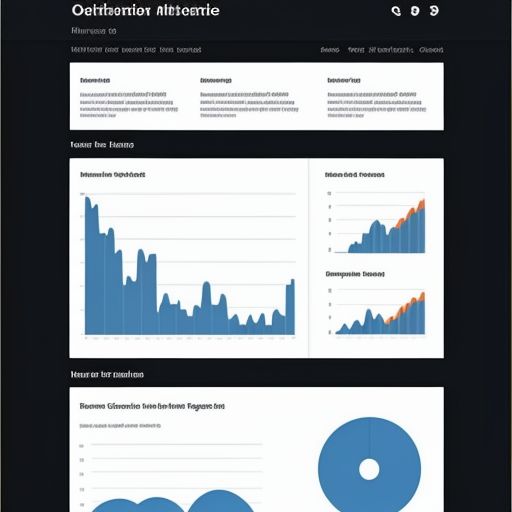In today’s digital landscape, a website can be your strongest asset. It’s your virtual storefront, your online portfolio, your voice in the vast digital world. But have you ever considered taking full control and Hosting Your Own Website?
This approach, while requiring a touch more technical know-how, offers unparalleled flexibility and control over your online presence. In this article, we’ll demystify the concept of self-hosting, explore its advantages and challenges, and guide you through the essential considerations.
What Does it Mean to Host Your Own Website?
Imagine you’re building a house. You can choose a pre-built one in a neighborhood managed by a company, or you can buy a piece of land and build your dream home from the ground up. Hosting your website is akin to the latter.
Instead of renting space on a shared server (like using platforms like Wix or Squarespace), you’re essentially buying and maintaining your own plot of digital land. This “land” is a server – a powerful computer dedicated to storing your website’s files and making them accessible to the world 24/7.
Why Go Through the Hassle? The Benefits of Self-Hosting
So, why would anyone choose the complexities of self-hosting over the convenience of shared hosting solutions? Let’s explore the compelling reasons:
1. Unrivaled Control and Customization
When you self-host, you’re the captain of your digital ship. You have complete control over every aspect of your server environment, from the operating system and software to security protocols and performance optimization. This level of customization allows you to tailor your setup precisely to your website’s needs.
2. Enhanced Security and Privacy
Shared hosting, while generally secure, inherently involves sharing server resources with other websites. This shared environment can increase the risk of security vulnerabilities and data breaches. With self-hosting, you have complete control over security measures, allowing you to implement robust firewalls, intrusion detection systems, and other security protocols to safeguard your website and visitor data.
3. Improved Performance and Scalability
On a shared server, your website’s performance can be affected by the activities of other websites hosted on the same server. If your “neighbor” experiences a surge in traffic, it can impact your website’s loading speed and overall performance. Self-hosting gives you dedicated resources, ensuring consistent performance and the ability to handle traffic spikes without compromising user experience.
4. Domain Name Flexibility and Email Hosting
Self-hosting grants you the freedom to use any domain name you desire and create custom email addresses using your domain. This level of personalization strengthens your brand identity and lends a professional touch to your online communication.
hosting.decornhalux.com/wp-content/uploads/2024/07/server-room-668f88.jpg" alt="Server Room" width="512" height="512">Server Room
Navigating the Challenges: What to Consider Before Taking the Plunge
While the advantages of self-hosting are enticing, it’s crucial to acknowledge the challenges involved:
1. Technical Expertise Required
Unlike user-friendly shared hosting platforms, self-hosting demands a certain level of technical expertise. You’ll need to be comfortable managing server software, configuring security settings, and troubleshooting technical issues.
2. Increased Responsibility and Maintenance
With great power comes great responsibility. As the sole administrator of your server, you’re responsible for its upkeep, including regular software updates, security patches, and backups.
3. Potentially Higher Costs
While shared hosting typically comes at an affordable monthly fee, self-hosting involves costs associated with purchasing or renting server hardware, bandwidth, and potentially, technical support.
Is Self-Hosting Right for You?
The decision to self-host ultimately boils down to your specific needs, technical capabilities, and resources. If you prioritize control, security, performance, and have the technical aptitude to manage a server, self-hosting might be the ideal solution.
However, if you’re looking for a hassle-free, budget-friendly option and lack technical expertise, shared hosting platforms offer a user-friendly alternative.
Conclusion
Hosting your own website is akin to embarking on a journey of digital independence. It empowers you with control, flexibility, and the potential for enhanced performance and security. However, this freedom comes at the cost of increased responsibility, technical knowledge, and potentially higher costs.
By carefully weighing the pros and cons and assessing your individual circumstances, you can make an informed decision that aligns with your website’s goals and sets you on the path to online success.
Do you have any questions about self-hosting? Share your thoughts and experiences in the comments below!





